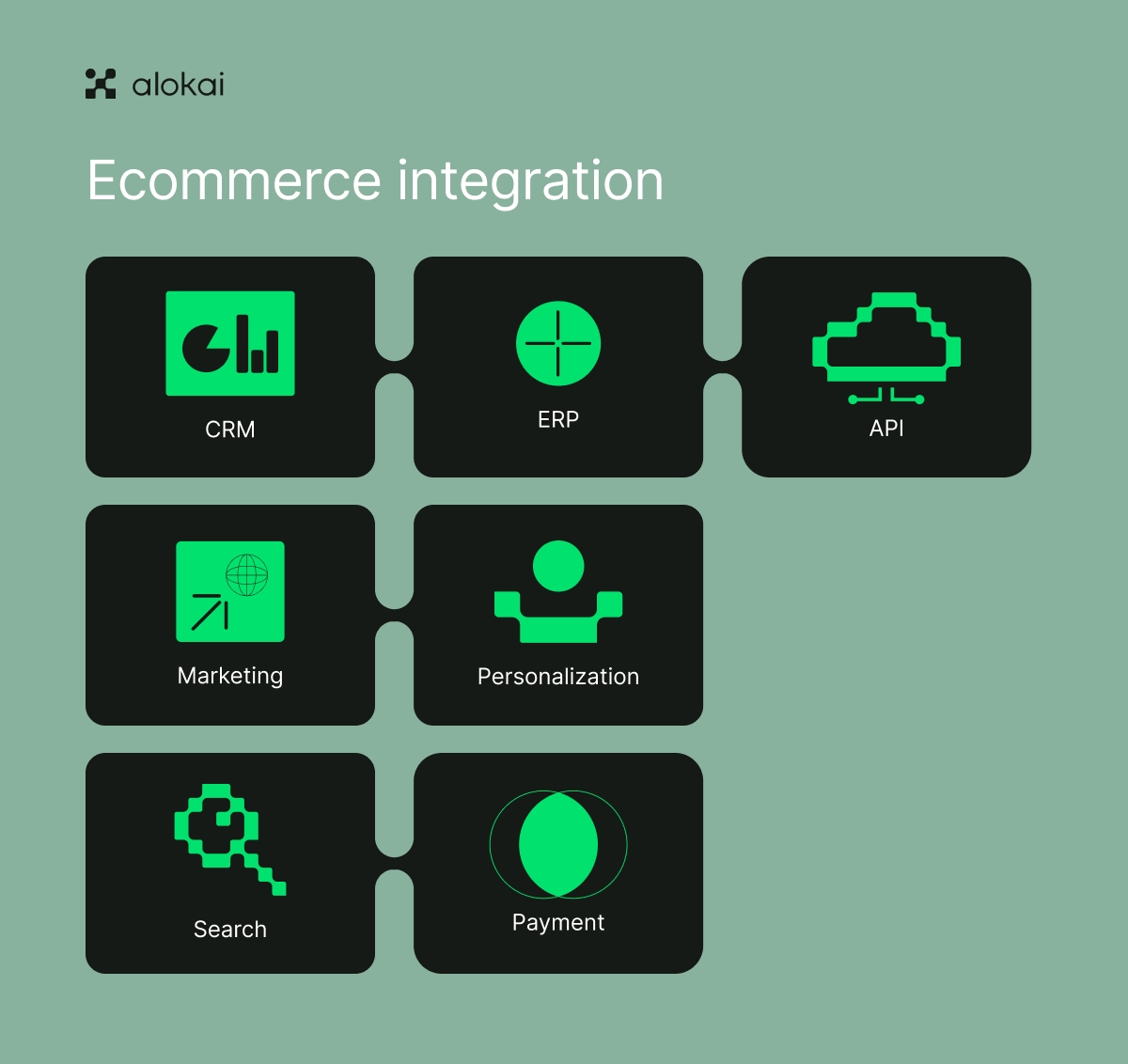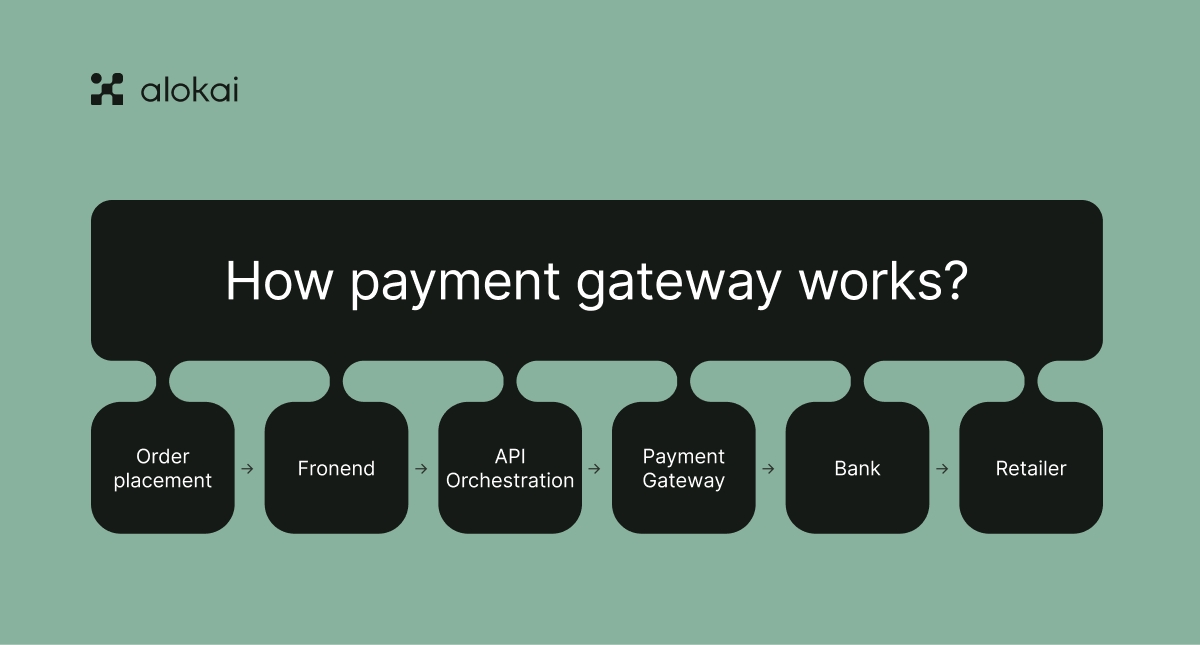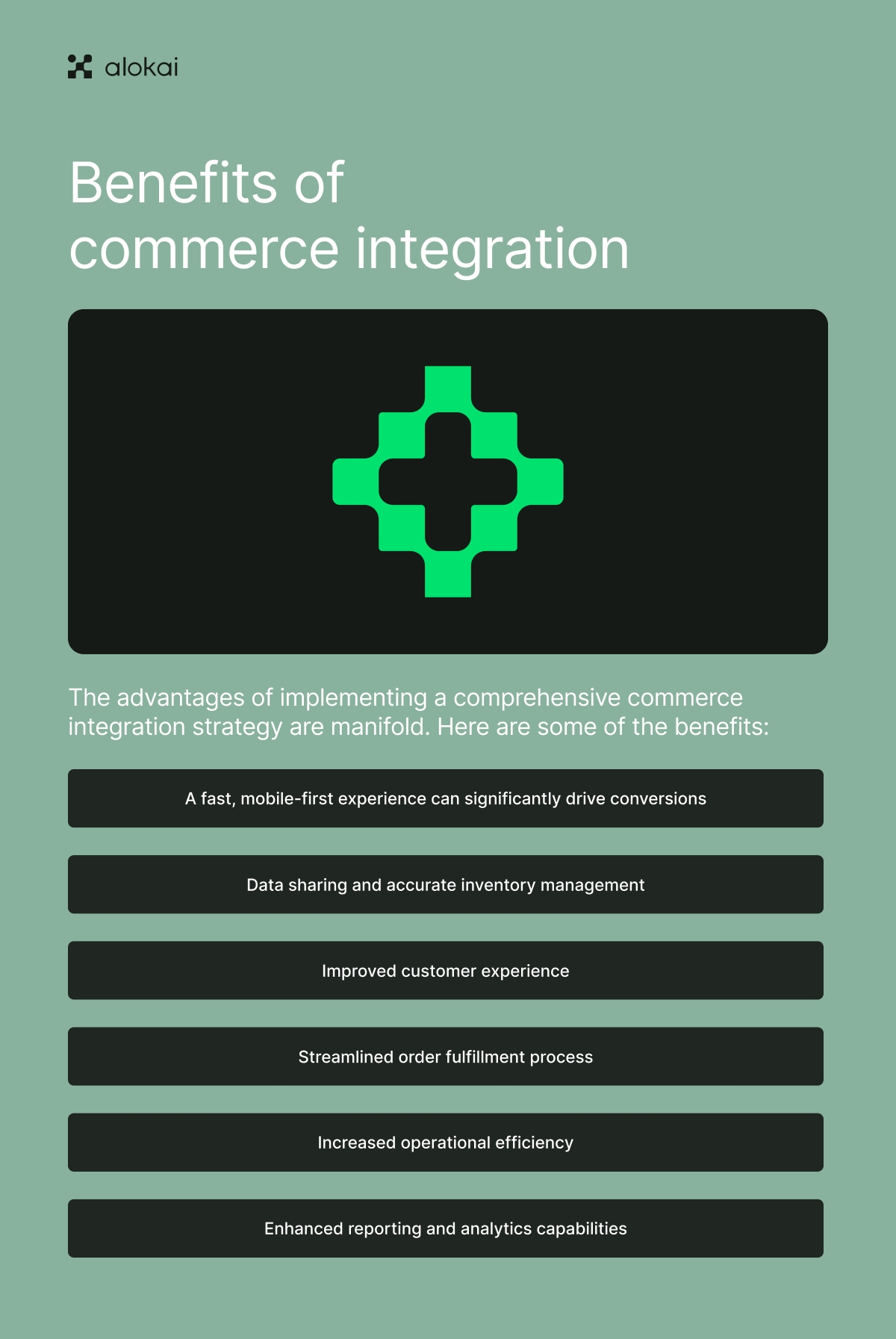Commerce integration connects your business systems for smoother operations and better customer experiences. This article will explain commerce integration, its importance, and how it benefits your business.
Key takeaways
- Commerce integration is vital for modern ecommerce businesses, ensuring seamless communication between CRM, ERP, payment gateways, and other systems to enhance operational efficiency and customer experience.
- Key types of commerce integrations include CRM systems for customer data, ERP systems for core business functions, inventory management systems for stock accuracy, payment gateways for secure transactions, and marketing tools for personalized customer engagement.
- Despite the benefits such as eliminating manual data entry, maintaining accurate inventory levels, and enhancing retailer efficiency, successful commerce integration requires clear goals, stakeholder engagement, thorough testing, and effective communication.
Introduction
The landscape of commerce is evolving rapidly, and staying ahead of the curve is no longer a luxury—it’s a necessity. With the rise of omnichannel experiences and digital storefronts, businesses in 2024 face the challenge of synchronizing their operations across various platforms and systems to deliver that much-coveted seamless customer experience. From the nuances of payment processing to the complexities of inventory management, commerce integration is the invisible force that ties it all together, ensuring that your business is not just surviving but thriving in this new era of retail.
Understanding commerce integration

At its core, ecommerce data integration is about creating a cohesive, interconnected ecosystem where every component of your business communicates flawlessly with the others. Picture an ecommerce platform where data flows seamlessly between your CRM, ERP, and payment gateways, creating a symphony of efficiency that resonates with every click your customer makes.
This section will address indispensable ecommerce integrations for progressive businesses and emphasize the indispensability of system integration for digital marketplace success.
What is commerce integration?
Commerce integration is the digital glue that binds your ecommerce store with the myriad of software solutions that power it. Through the magic of APIs—those nifty software intermediaries—your ecommerce site becomes a hub of real-time data exchange, connecting to ecommerce software integrations, inventory systems, and even custom integration solutions.
The goal is to develop a system that not only streamlines operations and augments ecommerce features, but also offers a distinctive user experience that elevates your brand above competitors.
Why is commerce integration important?
Consider the modern ecommerce customer—they’re savvy, they’re demanding, and they interact with your brand across multiple touchpoints. With commerce integration, customers are guaranteed a consistent, customized experience that encourages repeat business, regardless of their interaction point with your business.
Beyond customer satisfaction, the benefits of ecommerce integration extend to operational efficiency and market expansion, enabling your business to scale with agility and confidence through e commerce integration.
Key types of commerce integrations
Commerce integration is a multifaceted concept, encompassing various systems and tools that work in unison to optimize your online business. From the data flow enabled by CRM systems to the financial data managed by ERP software, each integration plays a pivotal role in shaping the customer experience and streamlining business processes.
We will examine crucial ecommerce integrations that constitute the foundation of a robust ecommerce platform.
Customer Relationship Management (CRM) systems
Central to any commerce integration strategy is the CRM system, a powerhouse that harnesses customer data to foster stronger relationships and drive customer loyalty. By integrating a CRM platform, such as Salesforce, into your ecommerce website, you gain a panoramic view of your customers’ journeys, preferences, and pain points. This integration is a gateway to personalized experiences, enabling you to track interactions across various systems and channels, including social media platforms, and tailor your approach to meet the unique needs of each customer.
Enterprise Resource Planning (ERP) systems
An ERP system serves as the backbone of your ecommerce business, integrating core functions like inventory management, accounting, and order processing into a single, streamlined workflow. By connecting an ERP system to your online store, you can manage financial data, inventory levels, and business processes with unparalleled precision, ensuring that your online presence is fully supported by a robust and responsive backend operation.
Inventory Management systems
A well-oiled ecommerce platform is only as good as its ability to manage inventory effectively. Inventory management systems integration ensures that your stock levels are accurate, up-to-date, and reflective of what’s displayed on your ecommerce site. This synchronization not only prevents the dreaded scenario of overselling but also empowers you with the data needed for efficient inventory forecasting and multichannel management.
Payment gateways

The checkout process is the culmination of your customer’s shopping experience, and integrating a reliable payment gateway is critical for ensuring a smooth and secure transaction. Payment gateways like Stripe and PayPal offer seamless, immediate payment processing, safeguarding customer data and providing a simplified pricing model that can enhance the overall customer experience.
Marketing tools
The integration of marketing tools with your ecommerce platform is a game-changer for online sales and customer relationships. By leveraging customer data, you can craft targeted email campaigns, engage customers through SMS, and create a unified presence across social media platforms.
This level of integration ensures that your marketing efforts are not only effective but also highly personalized, driving customer loyalty and repeat business.
Benefits of commerce integration
The advantages of implementing a comprehensive commerce integration strategy are manifold. Here are some of the benefits:
A fast, mobile-first experience can significantly drive conversions
- Data sharing and accurate inventory management
- Improved customer experience
- Streamlined order fulfillment process
- Increased operational efficiency
- Enhanced reporting and analytics capabilities

The benefits of ecommerce integration touch every aspect of your business, including online stores.
We will explore the specific ways commerce integration can boost your operations and gear your business towards sustainable growth.
Eliminates manual data entry
One of the most immediate benefits of commerce integration is the elimination of manual data entry. This not only saves time but also significantly reduces the potential for human error. Accurate data is the foundation of sound business decisions, and by automating data integration, you ensure that information across various systems is synchronized and up-to-date.
Maintains accurate data and inventory levels
A central benefit of commerce integration is its ability to:
- Maintain accurate data and inventory levels across multiple systems
- Ensure that your customers have a reliable shopping experience
- Prime your inventory systems for efficient order fulfillment and stock management.
Accurate inventory synchronization is key to meeting customer demand without the risk of overselling or stockouts.
Enhances retailer efficiency
Ecommerce integration platforms, also known as ecommerce platforms, are the linchpins of retailer efficiency. By coordinating workflows and providing real-time updates, they ensure that every aspect of the online store operates at peak performance. This efficiency not only benefits the retailer but also enhances the customer experience by providing transparency and speed in every interaction. With the right ecommerce integration platform, businesses can streamline their processes and achieve greater success.
Scales and streamlines operations
As your ecommerce business grows, the need for scalable solutions becomes critical. Commerce integration streamlines complex processes, allowing you to:
- Manage increased transactions and data flow without overburdening your existing infrastructure
- Scale your business to expand your reach
- Adapt to an ever-changing commercial landscape
This scalability is essential for businesses looking to grow and succeed in the ecommerce industry.
Challenges in implementing commerce integration
While the benefits of commerce integration are clear, the path to achieving a seamless integration can be fraught with challenges. Complex system customizations, the adaptation of employees to new technologies, and meeting the diverse requirements of various sales channels are just a few of the obstacles businesses may encounter. Tackling these challenges head-on is crucial for a successful integration that reaps the full benefits.
Best practices for successful commerce integration
To navigate the complexities of commerce integration, certain best practices must be followed. Here are some key steps to ensure a successful integration strategy:
- Establish clear goals for the integration process.
- Engage stakeholders from all relevant departments to ensure their needs and requirements are considered.
- Conduct thorough testing to identify and address any potential issues or conflicts.
- Communicate with all parties involved to ensure everyone is on the same page and understands the integration process. By following these best practices, you can mitigate risks and ensure a smooth transition that enhances the ecommerce experience for both the business and its customers.
Clear understanding of requirements
A critical aspect of successful commerce integration is a clear understanding of the requirements involved. Accurate requirement analysis ensures that the selected tools and technologies align with the business’s objectives, preventing costly oversights and delays. It’s the blueprint that guides the integration process, ensuring that all stakeholders are on the same page and working towards a common goal.
Top commerce integration software for 2024
In the fast-paced world of ecommerce, staying up-to-date with the latest and greatest software solutions is key to maintaining a competitive edge. As we look to 2024, a selection of top-tier commerce integration platforms stands out for their robust features, ease of use, and innovative approaches to integration. We will examine some of the leading software options that are revolutionizing the ecommerce business landscape.
Alokai
Alokai emerges as an integration powerhouse, offering a unified data orchestration layer that easily connects your ecommerce stack. Its API-first approach facilitates the creation of customizable ecommerce frontends while also enabling seamless connections with modern CMSs, ERP systems, and other essential tools.
With Alokai, the integration possibilities are limitless, allowing for a tailored ecommerce experience that meets the unique demands of your business.
Commercetools
Commercetools, with its innovative commercetools Connect framework, presents a low-code, high-impact solution for ecommerce integration. This platform specializes in creating swift connections through reliable connectors, offering a managed runtime environment that ensures stability and performance.
Commercetools empowers developers with the freedom to integrate quickly, driving growth and enhancing customer satisfaction through seamless commerce integrations.
BigCommerce
BigCommerce is a versatile integration platform catering to large-scale ecommerce operations. Its features include:
- Open API architecture that allows for extensive customization and integration with a variety of third-party tools
- Integration with ERP and CRM systems
- Integration with payment gateways
BigCommerce’s focus on operational efficiency and real-time data synchronization equips businesses with the tools they need to deliver exceptional customer experiences.
Legacy platforms like SAP CC or SFDC can be open to modern solutions as well
Even legacy platforms like SAP CC and SFDC are embracing the modern wave of commerce integration, thanks to solutions like Alokai that bridge the gap between traditional systems and contemporary needs. With the right integration platform, these stalwarts of the software world can adapt to offer fast, scalable ecommerce frontends that match today’s customer expectations while preserving their trusted functionalities.
Summary
As we wrap up this journey through the world of commerce integration, it’s clear that the harmonious interplay between various systems and platforms is no longer just an option but a critical component for business success. By embracing the myriad of integration possibilities, businesses can unlock efficiency, agility, and a customer-centric approach that stands the test of time. As you consider your commerce integration needs, remember that the right strategy and tools can propel your business to new heights, creating a seamless experience that delights your customers and sets you apart.
